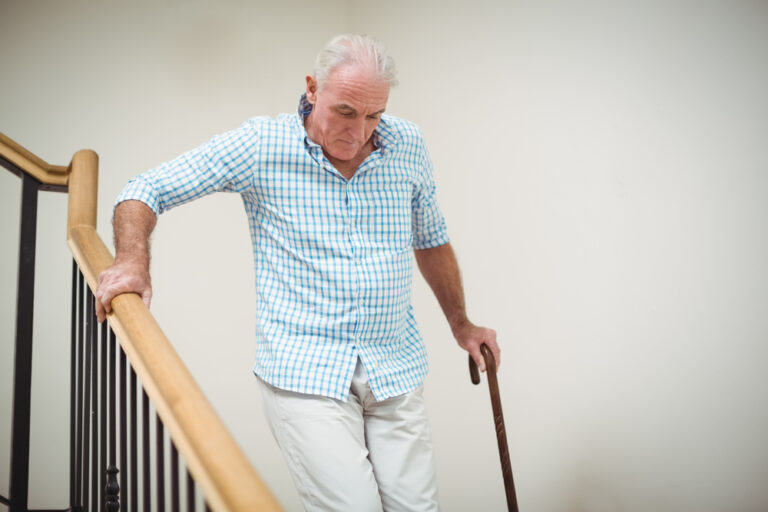“In Canada, falls are the leading cause of injury-related hospitalizations and injury deaths among people aged 65 or older,” reports the Government of Canada, “Injuries from falls reduce older adults’ quality of life, increase caregiver demands, and precipitate admissions into long-term care. The cost of treating fall-related injuries is high.”
Do you live with an older adult? It’s imperative that you put efforts into making your home as safe as possible. Preventing falls can be done in many ways. Arguably, there is no more important fall prevention measure than safeguarding your staircases. This is especially true if your elderly loved one battles with balance issues. Perhaps, it’s time to install a stair lift in your home.
Does the senior in your home experience dizziness?
Needless to say, this is a condition that should be immediately checked out by a doctor. In some cases, medication is necessary. In other cases, stopping medication helps with the dizziness issue. Regardless of the culprit behind the condition, an older adult who is frequently dizzy or has fainting spells should avoid the stairs. That is, of course, unless he/she has access to a stair lift. It provides safe and secure travel up and down the stairs.
The U.K.’s Euro Lifts cites dizziness and fainting spells as telltale signs that a stair lift is needed. “There is always the danger of having a dizzy episode while you’re on the stairs and that could prove to be far more dangerous than if you pass out or fall on a flat surface,” says their website.
Does your aging parent suffer from mobility issues?
When a person endures physical ailments, he/she is a lot less likely to be active. Firstly, it’s important for people of all ages to get a little exercise in each day. For seniors, it helps to improve blood circulation, maintain healthy weights and better balance. Secondly, an individual who is inactive will likely keep him/herself confined to one level of the home. This only promotes loneliness and isolation as it limits his/her ability to enjoy the entire home with the family.
The U.K.’s Aries Stairlifts Ltd. asks homeowners to take notice of any physical discomfort being experienced by their elderly loved ones. “Such discomfort could include breathing issues, pain, lack of strength or general discomfort whilst climbing the stairs,” explains their website.
Does your elderly loved one stop several times when climbing the stairs?
It’s never a race. But just how long does it take your aging parent to climb the stairs? If you notice that he/she stops a few times along the way, it’s a clear sign that the stair-climbing process is too difficult. A stair lift removes one from having to put effort into getting up and down the stairs. It also helps a senior to avoid the onset of medical condition that may result from exerting too much energy.
Euro Lifts asks homeowners to pay attention to how many times their elderly loved ones stop while climbing the stairs. “This may be due to being out of breath or because you have pain in your knees,” informs their site, “Whatever the reason, you should consider an easier way to get to the second floor.”
If you have any questions about the stair lifts offered by LifeCare Mobility Solutions, please don’t hesitate to call us at 416-267-9800 or email us at info@lifecaremobility.ca. You may also contact us by filling out the form on our Contact page!










